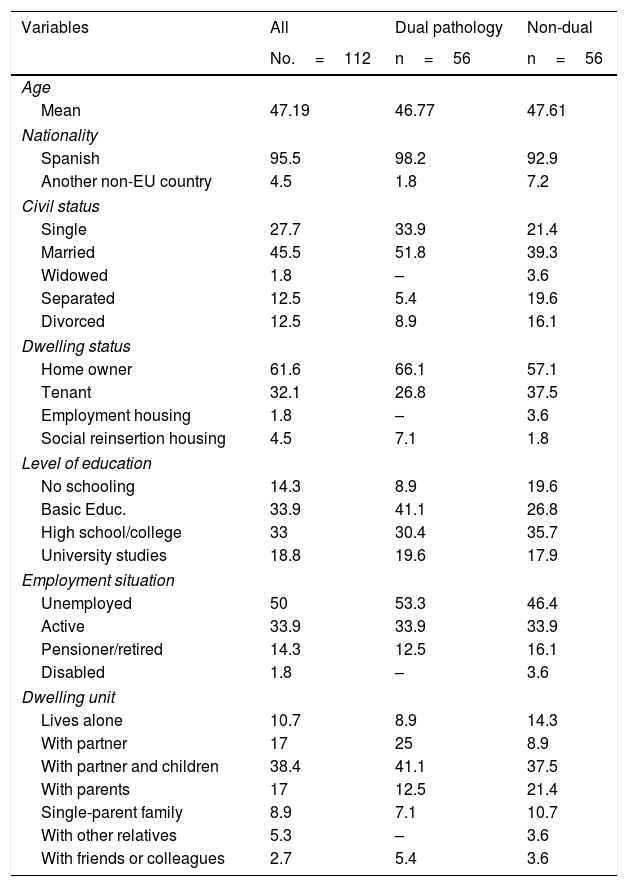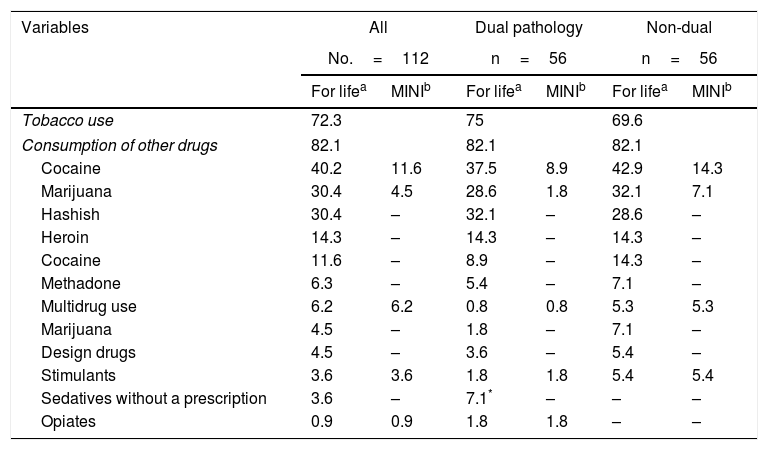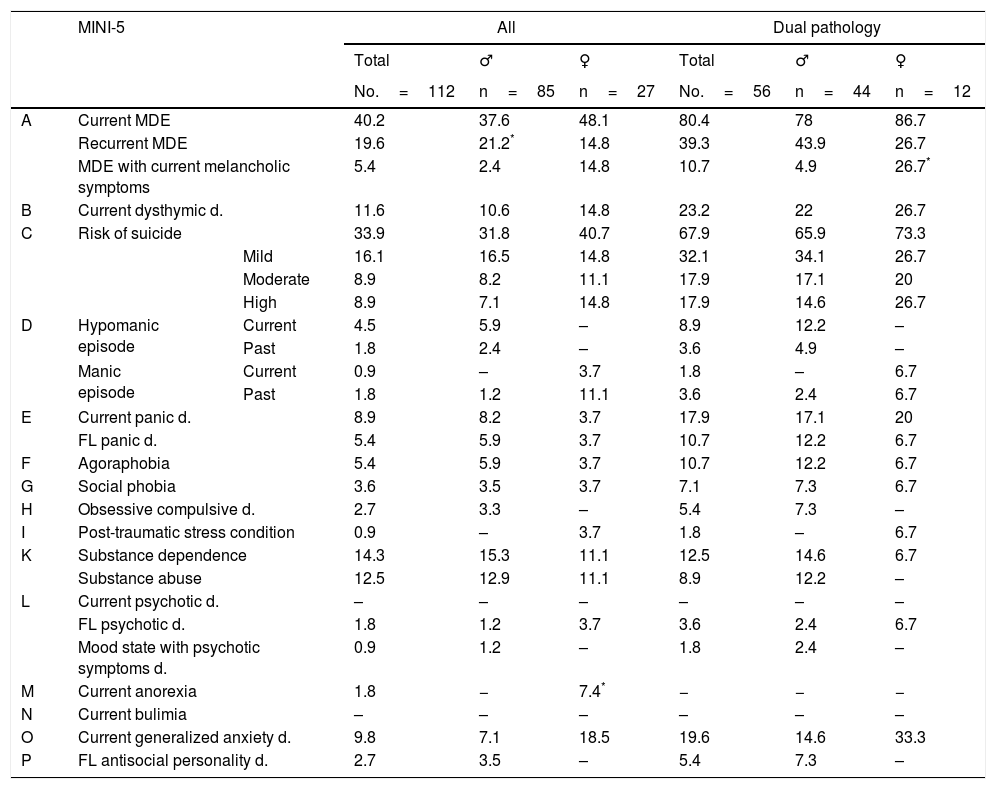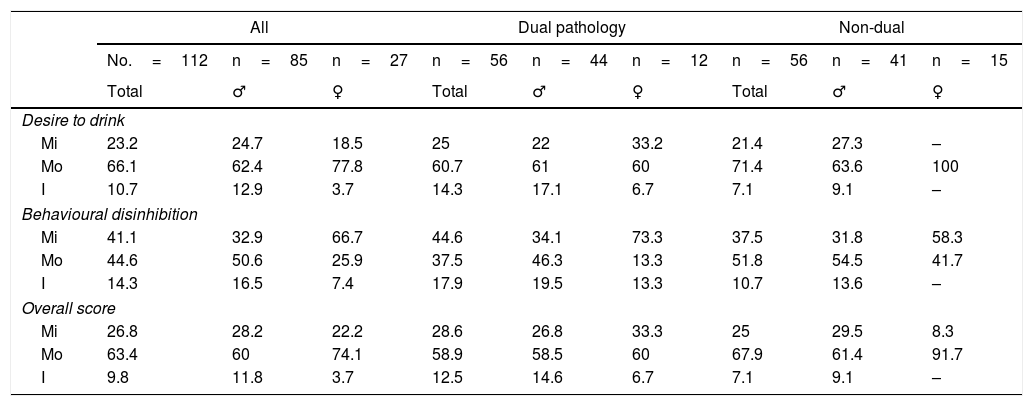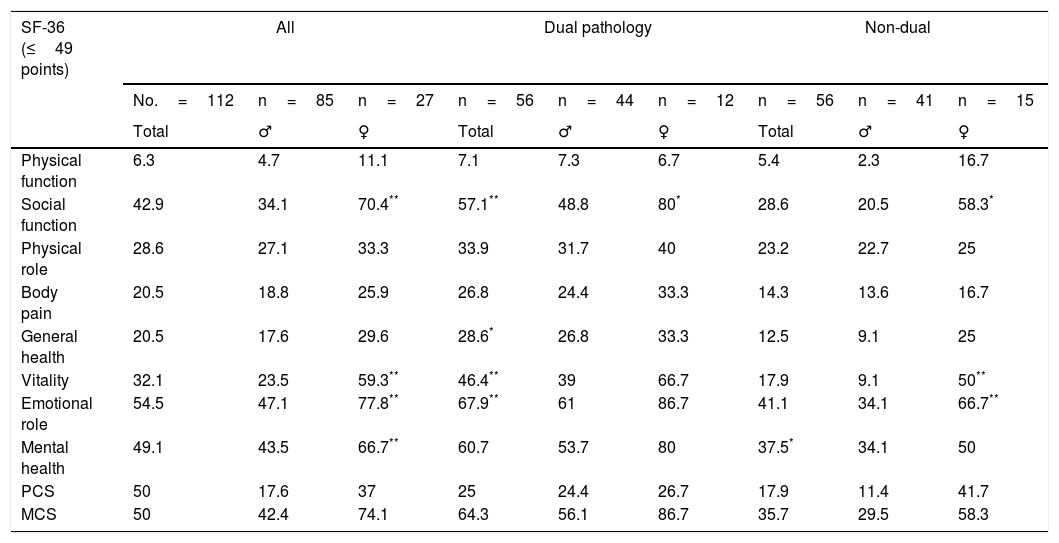Dual diagnosis is the coexistence of an addictive disorder and another mental disorder. The objective is to estimate cravings and self-reported quality of life in a sample of patients with alcoholic dependence, with or without dual pathology, who attend an outpatient treatment centre.
Patients and methodA cross-sectional study of 112 patients (56 dual and 56 non-dual), diagnosed with alcohol dependence according to DSM-IV-TR. The presence of cravings is determined by the Multidimensional Alcohol Craving Scale and quality of life through the SF-36 Health Questionnaire.
ResultsThere are no statistically significant differences in cravings in either subgroup; the latter tend to refer to lower alcohol cravings than non-dual patients. The dual patients have a worse quality of life in all categories evaluated, highlighting a worse quality of life in the categories: social function, emotional role, vitality and general health. Females present a lower quality of life emphasizing those of social function and emotional role. No differences were detected in relation to cravings between the 2 groups.
ConclusionsIn order to perform a correct clinical and therapeutic approach for patients with alcohol dependence, we should consider focusing on the evaluation of cravings and quality of life. In order to perform a correct clinical and therapeutic approach for patients with alcohol dependence, it is necessary to consider cravings and quality of life, since these parameters are important for the evaluation of patients with alcohol dependence.
Enfermedad dual es la coexistencia al mismo tiempo de un trastorno adictivo y otro trastorno mental. El objetivo es estimar el craving y la calidad de vida autopercibida en una muestra de pacientes con dependencia alcohólica, con o sin enfermedad dual, que acuden a un centro de tratamiento ambulatorio.
Pacientes y métodoEstudio transversal de 112 pacientes (56 duales y 56 no duales) diagnosticados de dependencia de alcohol según el DSM-IV-TR. Se determina la presencia de craving mediante la Escala Multidimensional de Craving de Alcohol y la calidad de vida mediante el Cuestionario de Salud SF-36.
ResultadosNo existen diferencias estadísticamente significativas en el craving entre ambos subgrupos; los duales tienden a referir menor craving de alcohol que los pacientes no duales. Los duales tienen una peor calidad de vida en todas las categorías evaluadas, destacando una peor calidad de vida en las categorías: función social, rol emocional, vitalidad y salud general. El sexo femenino presenta una menor calidad de vida, destacando las categorías de función social y rol emocional. No se detectan diferencias en relación al craving entre los 2 grupos.
ConclusionesPara realizar un correcto abordaje clínico y terapéutico de los pacientes con dependencia alcohólica se debe plantear evaluar el craving y la calidad de vida, puesto que son parámetros importantes para la evaluación del paciente con dependencia alcohólica. Además, el craving es un parámetro propio de la dependencia alcohólica, no de la dualidad.





